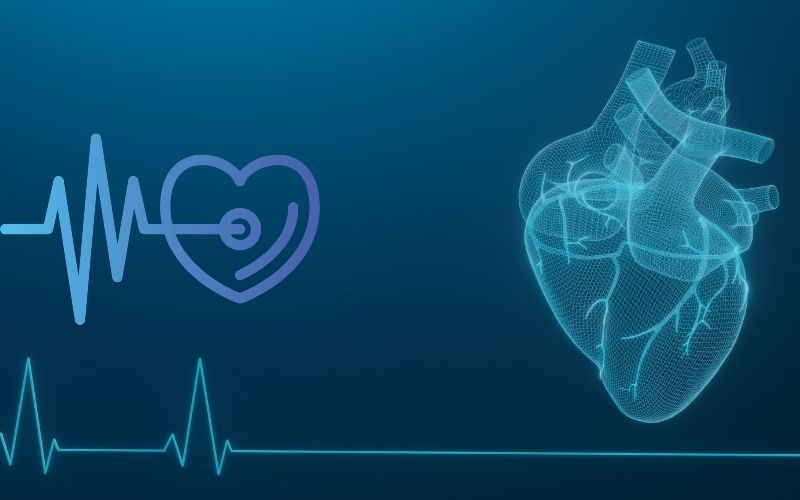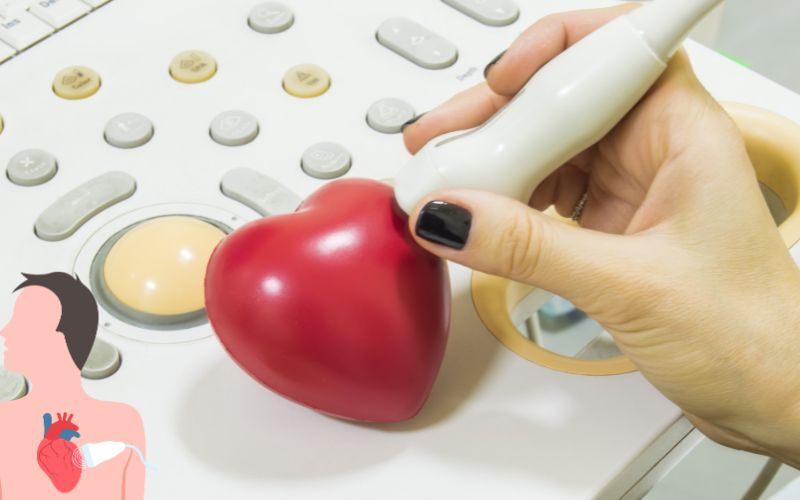Cardiomyopathy is a condition that weakens the heart muscle, causing it to stiffen, thicken, or enlarge, and sometimes leading to the development of scar tissue. This affects the heart’s ability to pump blood effectively to the rest of the body. The problem can affect people of any age, sex, or race, and in severe cases, individuals may eventually require a heart transplant.
Reports show that approximately 1 in every 500 people worldwide is affected by the most common inherited form of this disease. There are various types including ischemic cardiomyopathy, arrhythmogenic cardiomyopathy, dilated cardiomyopathy treatment, and others.
Common symptoms include shortness of breath, chest pain, fatigue, and swelling in the legs or ankles. Treatment can help manage these symptoms, improve quality of life, and slow the disease’s progression. Read this blog until the end to learn about cardiomyopathy, its types, symptoms, and more.
Types of Cardiomyopathy
Below are the most common types:
Dilated Cardiomyopathy (DCM)
This is the most common form. In DCM, the heart’s chambers, particularly the left ventricle, become enlarged and weakened, leading to poor blood circulation. This type can result from a variety of factors, such as a heart attack, viral infections, or long-term alcohol use.
Hypertrophic Cardiomyopathy (HCM)
In hypertrophic cardiomyopathy, the heart muscle becomes abnormally thick, particularly the septum (the wall between the two chambers). This thickening makes it harder for the heart to pump blood, and in some cases, it can lead to dangerous arrhythmias (irregular heartbeats). HCM is often inherited and affects younger people.
Restrictive Cardiomyopathy (RCM)
In this rare form of this heart disease, the heart muscle becomes stiff, reducing its ability to expand and contract properly. The cause of RCM is sometimes unknown, but it can be linked to other diseases like amyloidosis or sarcoidosis. It tends to affect older individuals and can lead to heart failure.
Arrhythmogenic Right Ventricular Cardiomyopathy (ARVC)
ARVC primarily affects the right ventricle and is characterised by replacing heart muscle with fatty tissue. This can disrupt the heart’s electrical system, causing irregular heart rhythms. This type is often inherited and affects younger individuals.
Stress-induced (Takotsubo) heart muscle weakening
Often referred to as “broken heart syndrome,” this condition occurs when the heart muscle weakens temporarily, often after a stressful event, like the loss of a loved one. It mimics a heart attack but improves with treatment and does not result in long-term heart damage.
Alcohol-induced heart weakness
This condition is caused by excessive alcohol consumption over time. It leads to the enlargement and weakening of the heart muscle, which can cause symptoms similar to dilated cardiomyopathy.
Chemotherapy-induced Cardiomyopathy
Some chemotherapy medicines also cause damage to the heart muscle. The condition can range from mild to severe and may improve after treatment, but long-term damage may require ongoing care.
Symptoms of Cardiomyopathy
Common symptoms include shortness of breath, chest pain, fatigue, and swelling in the legs or ankles. If left untreated, these symptoms may worsen over time, affecting overall quality of life.
ECG Findings in Cardiomyopathy
An electrocardiogram (ECG) is a common test used to diagnose the weakness of heart muscles in this disease. This test records the heart’s electrical activity and can help detect any irregularities that may indicate cardiology diseases. The following ECG findings may suggest the presence of cardiomyopathy:
- Abnormal heart rhythms: Dilated cardiomyopathy ECG helps detect arrhythmias, which are common in people with hypertrophic cardiomyopathy.
- Enlarged heart: Signs of an enlarged heart can be seen in dilated ECG.
- ST-segment changes can be seen in certain types of this disease, particularly those related to stress or ischemia.
- Q waves: The presence of abnormal Q waves may indicate that a heart attack has previously occurred, which can lead to dilated cardiomyopathy.
An ECG alone cannot confirm the diagnosis but it can help heart specialists decide whether further tests, such as an echocardiogram or MRI, are needed.

Best Treatment for heart problems in Delhi
Cardiomyopathy treatment depends on the type, severity, and symptoms of issues. Here are the best heart treatment in Delhi for each type:
Dilated Cardiomyopathy (DCM)
- Medications: ACE inhibitors, beta-blockers, and diuretics to improve heart function and manage symptoms.
- Implantable cardioverter defibrillators (ICD): For severe cases of arrhythmias.
- Heart transplant: In end-stage heart failure cases.
Hypertrophic Cardiomyopathy (HCM)
- Beta-blockers and calcium channel blockers: Its treatment reduces symptoms and controls heart rhythm.
- Septal myectomy: Surgical removal of part of the thickened heart muscle.
- Alcohol septal ablation: A non-surgical option to shrink thickened tissue.
- ICD: For those at risk of life-threatening arrhythmias.
Restrictive Cardiomyopathy (RCM)
- Medications: Diuretics to reduce fluid buildup.
- ACE inhibitors or ARBs: To ease the heart’s workload.
- Heart transplant: In severe cases of heart failure.
Arrhythmogenic Right Ventricular Cardiomyopathy (ARVC)
- Beta-blockers and antiarrhythmic drugs: To control abnormal heart rhythms.
- ICD: For preventing sudden cardiac arrest.
- Heart transplant: In advanced stages.
Stress-induced Cardiomyopathy (Takotsubo)
- Supportive care: Rest and stress management.
- Beta-blockers and ACE inhibitors: To support heart function during recovery.
- Heart failure medications: For prolonged symptoms.
Alcohol-induced Cardiomyopathy
- Abstinence from alcohol: Key to halting progression.
- Medications: Diuretics, ACE inhibitors, and beta-blockers to manage symptoms.
- Heart transplant: In severe cases.
Chemotherapy-induced Cardiomyopathy
- Medicines: ACE inhibitors, beta-blockers, and diuretics.
- Heart failure management: Ongoing monitoring and treatment.
- Heart transplant: If the damage is severe.
Quick Steps to Treat Cardiomyopathy
While some types of this disease are inherited, lifestyle changes can help reduce the risk or manage the condition. Key preventive measures include maintaining healthy blood pressure, eating a balanced diet, exercising regularly, avoiding alcohol and drugs, quitting smoking, managing stress, and scheduling regular check-ups. Treating underlying conditions like high cholesterol, diabetes, and thyroid issues can also help prevent worsening of the disease.
If you experience any of the symptoms mentioned above, consult a cardiology specialist in Delhi for an accurate diagnosis and appropriate treatment. With the right treatment, people with cardiomyopathy can lead normal, healthy lives. Consult with a cardiologist at one of the best heart hspital in Delhi Kalra Hospitals to learn more about your condition and tackle it as soon as possible.








